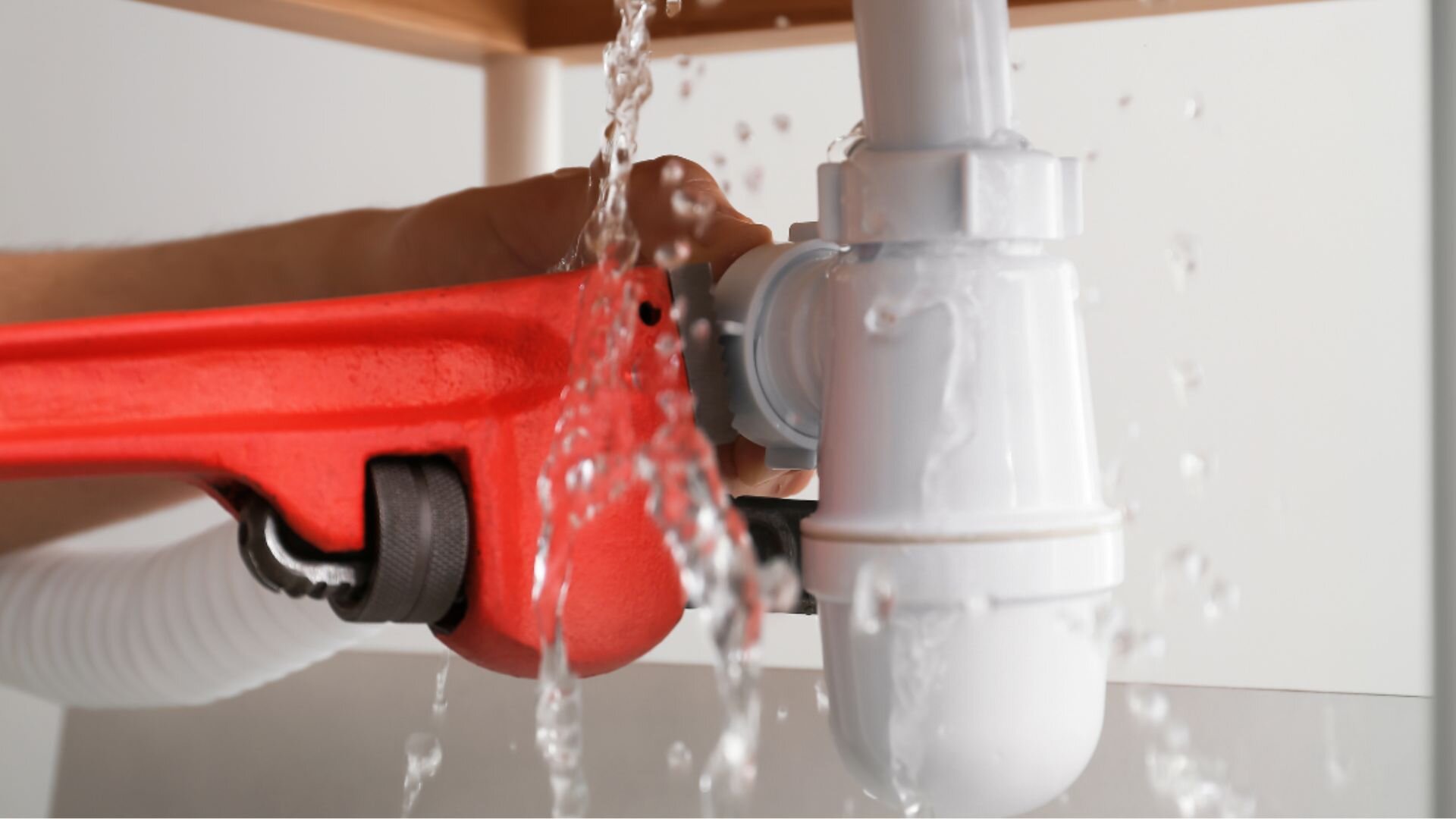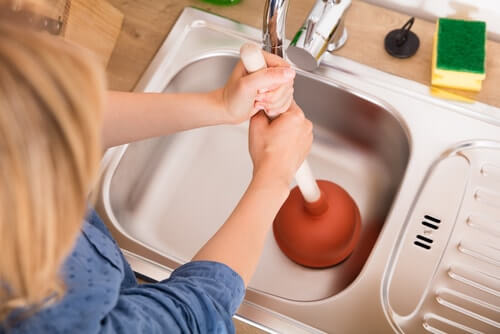Here down the page you will discover lots of good quality information concerning Expert Tips for Emergency Plumbing Repairs.

Pipes emergencies can strike at any moment, creating stress and potential damage to your home. Whether it's a burst pipeline, a clogged up drainpipe, or a dripping tap, recognizing just how to take care of the situation until an expert plumbing technician shows up can conserve you from additional complications. This write-up offers important emergency plumbing tips to assist you alleviate damages and regain control during a plumbing situation.
Switch off the Water Supply
The primary step in any pipes emergency situation is to shut down the water. For localized problems, such as a dripping tap or bathroom, shut off the valve near the fixture. In the case of a major leak or burst pipeline, situate your home's major water shut-off shutoff and turn it off instantly. Knowing the area of these valves beforehand can conserve useful time during an emergency.
Shut down Your Hot Water Heater
In certain emergency situations, such as a burst pipeline, it's smart to shut down your hot water heater. This stops overheating or damage to the device when water quits flowing. Turn off the power supply to the hot water heater (electric or gas) and allow it cool off to stay clear of possible hazards.
Briefly Stop a Burst Pipe
A burst pipeline can lead to significant water damage in minutes. To reduce the issue:
- Clamp or Wrap the Pipe: Use a pipe clamp, rubber, or duct tape as a temporary seal.
- Draw Away Water Flow: Preferably, divert the water right into a container or container to limit damage to bordering areas.
- Keep the Location Dry: Use towels or a wet/dry vacuum to get rid of standing water.
- Call a professional plumbing professional right away to resolve the problem permanently.
Have an Emergency Situation Pipes Package
Prepare a basic plumbing emergency situation set to take care of minor concerns effectively. Your set should consist of: - Flexible wrench
- Plumber's tape
- Pipe secures
- Towels and cloths
- A bettor
- Epoxy putty
- Container.
- Having these tools available can make a significant distinction in your ability to handle emergencies.
Unclog Drains Securely.
A blocked drainpipe can be an aggravating and unpleasant issue. Right here's how to tackle it:. - Utilize a Bettor: For sinks or bathrooms, a bettor can often remove small blockages. Guarantee you make use of the appropriate kind of bettor for the fixture.
- Hot Water and Recipe Soap: For grease-related clogs, put a combination of hot water and recipe soap down the drain to break up the grease.
- Avoid Chemical Drain Cleaners: While appealing, chemical cleansers can create more injury than great, particularly to older pipelines.
- If these methods do not function, stay clear of utilizing too much force, as it may intensify the clog.
Manage Overflowing Toilets.
An overflowing bathroom can cause instant mayhem. Right here's what you ought to do:. - Quit the Water Circulation: Get rid of the tank lid and weigh down on the flapper valve to quit water from going into the dish. Switch off the water supply to the toilet if required.
- Dive Delicately: Make use of a toilet plunger to clear the obstruction, yet avoid aggressive plunging, which can cause splashing or more damage.
- Consist of the Spill: Use towels or a mop to clean up water promptly to stop floor covering damage.
Address Little Leakages with Temporary Fixes.
Small leaks can quickly come to be substantial issues if left unattended. Use these temporary solutions up until specialist assistance shows up:.
- Pipe Tape or Epoxy Putty: Use water resistant tape or epoxy putty to temporarily seal the leak.
- Rubber and Clamp Method: Cover an item of rubber or an old inner tube around the leakage and safeguard it with a hose pipe clamp or air duct tape.
- Containers or Towels: Location pails under the leakage to have water and stop damage to floor covering or furniture.
- While these solutions aren't permanent, they can assist minimize water loss and damages.
Take Care Of Frozen Pipes Meticulously.
In chillier climates, icy pipes are a typical emergency situation. If you presume a frozen pipeline:. - Turn Off the Water: Turn off the main water to prevent a ruptured pipe.
- Defrost Slowly: Make use of a hairdryer, heating pad, or cozy towels to thaw the pipe slowly. Stay clear of open flames or severe warmth, as these can damage the pipeline.
- Examine for Leakages: Once the pipe is thawed, check for fractures or leakages prior to turning the water back on.
Know When to Call an Expert.
While quick fixes can aid temporarily, specific pipes issues need prompt professional focus. Call a plumbing if:.
- A ruptured pipe triggers considerable flooding.
- Drains or bathrooms continue to be clogged in spite of your initiatives.
- You notice persistent leaks or water stress issues.
- Your water heater is dripping or malfunctioning.
- Without delay getting in touch with an expert makes certain the issue is fixed appropriately and prevents further problems.
Stop More Damages.
Taking quick action to reduce damages can conserve you money and time in the long run. Here's how:. - Move Valuables: Eliminate furnishings, electronic devices, and various other items from the affected area.
- Use Sandbags: For flooding situations, place sandbags around the location to redirect water.
- Turn off Electrical power: If water has gotten to electric outlets or devices, shut off the power to avoid shocks or fires.
Final thought.
Pipes emergency situations can be overwhelming, but with the ideal expertise and devices, you can take care of the circumstance efficiently until aid shows up. By turning off the supply of water, addressing little leaks, and making use of momentary fixes, you can lessen damage and keep your home safe. Remember, these tips are short-term remedies; always consult a certified plumbing technician to take care of the origin of the issue. Prep work and fast thinking are your best allies in any kind of plumbing emergency situation.
Expert Tips for Emergency Plumbing Repairs
Plumbing emergencies can be incredibly stressful and inconvenient. Whether it’s a burst pipe, a clogged drain, or a leaky faucet, these common plumbing emergencies need immediate attention to prevent further damage to your home. But before you panic, it’s important to understand the basics of plumbing repairs and the steps you can take to address these emergencies. In this article, we will share some expert tips to help you navigate through these situations and minimize potential water damage.
Identifying Common Plumbing Emergencies
- Leaky pipes and faucets
- Clogged drains and toilets
- Burst pipes
- Low water pressure
- Water heater problems
Essential Tools for Plumbing Repairs
- Plunger: Useful for unclogging toilets and drains
- Adjustable wrench: Needed for tightening or loosening nuts and bolts
- Pipe wrench: Ideal for gripping and turning pipes
- Tape measure: Necessary for accurate pipe measurements
- Plumber’s tape: Helps create watertight seals
Understanding Emergency Plumbing Services
Emergency plumbing services are designed to provide immediate assistance for unexpected plumbing issues that can cause significant damage to your home, business, or health. These services are typically available 24/7 and are staffed by experienced plumbers who can quickly diagnose and repair a wide range of plumbing problems.
When a plumbing emergency strikes, time is of the essence. Whether it’s a burst pipe flooding your basement or a gas leak posing a serious risk, emergency plumbing services ensure that help is just a phone call away. These professionals are equipped with the tools and expertise to handle any situation, minimizing damage and restoring your plumbing system to proper working order.
What Constitutes a Plumbing Emergency?
- Burst pipes or water supply lines: These can cause extensive water damage and need immediate repair to prevent flooding.
- Gas leaks or suspected gas leaks: Gas leaks are extremely dangerous and require prompt attention to avoid potential explosions or health hazards.
- Sewer backups or overflows: These can lead to unsanitary conditions and significant property damage.
- Clogged drains or toilets causing water to overflow: Overflowing water can damage floors, walls, and other structures.
- Leaks or water damage causing structural damage: Persistent leaks can weaken the structural integrity of your home or business.
- No hot water or heating: A lack of hot water can be more than an inconvenience, especially in colder months.
Common Causes of Plumbing Emergencies
- Aging or corroded pipes: Over time, pipes can deteriorate, leading to leaks or bursts.
- Improperly installed or maintained plumbing fixtures: Faulty installations or lack of maintenance can result in unexpected failures.
- Tree roots or other debris infiltrating your sewer line: Roots can grow into pipes, causing blockages and backups.
- Frozen pipes or water supply lines: In colder climates, pipes can freeze and burst, leading to significant water damage.
- High water pressure or sudden changes in water pressure: Excessive pressure can strain pipes and fixtures, causing them to fail.
- Natural disasters such as floods or earthquakes: These events can disrupt your plumbing system and cause severe damage.
Steps to Minimize Water Damage
- Locate the water shut-off valve: Knowing where the valve is can help you quickly cut off the water supply to the affected area.
- Turn off the water heater: If there’s a risk of water coming into contact with the heating element, make sure to turn off the water heater to avoid potential accidents.
- Open faucets and drain pipes: By opening faucets and drain pipes, you can relieve pressure and empty any standing water.
- Collect and contain water: Use towels, buckets, or bins to collect water and prevent it from spreading to other areas of your home.
https://leecountyplumbingandwellservice.com/expert-tips-for-emergency-plumbing-repairs/

Do you like reading up on Expert Tips for Emergency Plumbing Repairs? Create feedback down the page. We'd be happy to find out your opinion about this entry. We hope that you visit us again in the future. Enjoyed our post? Please share it. Help other people locate it. Thanks for your time. Don't forget to come visit our site back soon.
Quote
Comments on “Effective Solutions for Pipe Issues: Key Steps to Take Until Help Arrives”